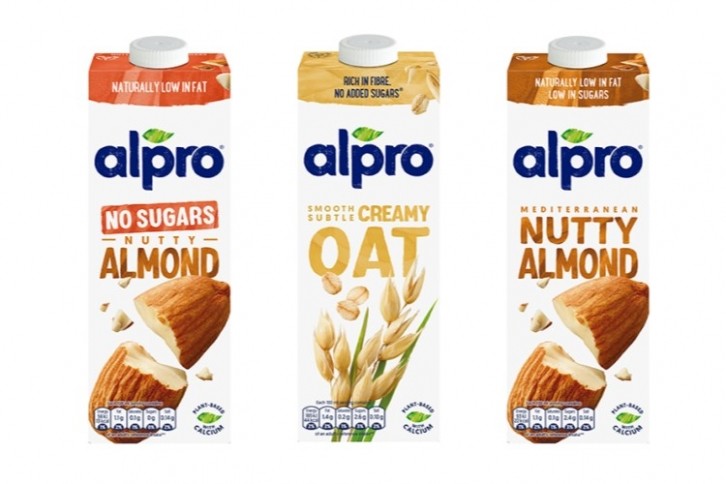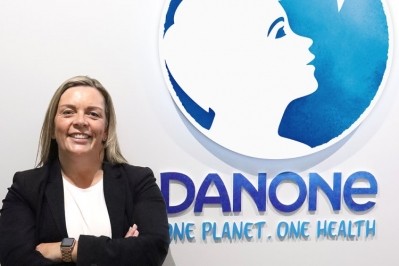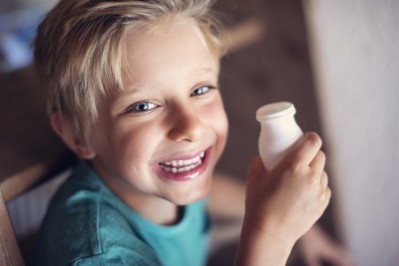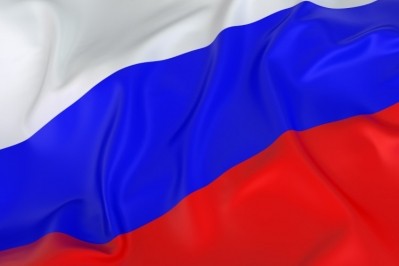Danone cuts Alpro price in Belgium to boost plant-based milk sales

Though not directly related, the move comes shortly after NGO ProVeg International published a report highlighting that price remains a barrier to purchasing plant-based dairy alternatives in Europe. ProVeg found that in 2023, plant-based alternatives sold in Europe carried a 25% average price premium compared to conventional meat or dairy products. This is lower than the premium seen in 2022, when the NGO estimated plant-based products were 53% more expensive.
But things are changing, with some European retailers moving to price private-label dairy alternatives lower or on a par with conventional dairy. For example, Lidl in Germany has adjusted the pricing of its Vemondo range of plant-based alternatives to have the same or lower prices than dairy, with Kaufland announcing a corresponding price adjustment for its “K-take it veggie” brand of dairy alternatives shortly after.
For plant-based milks in particular, the price difference is partly down to tax, ProVeg explained. For example, plant-based alternatives in Germany are charged 19% VAT versus 7% for conventional milk, with the biggest price discrepancy seen in yogurt, where 4 out of 6 plant-based alternatives cost more than the most expensive dairy yogurt. Elsewhere in Europe including in major dairy-producing countries such as Spain, Italy and Greece, a higher VAT rate is also applied on plant-based alternatives.
In search for flexitarians
In a move to bring this discrepancy to light and influence the long-term adoption of dairy alternatives among consumers who have been put off by the high price tag, Danone has placed a lower recommended retail price on its Alpro Oat and Almond products in Belgium and has asked retailers to support its drive by adhering to a promotional pricing of up to €2/$2.14 per carton.
As reported by Stefan Van Rompaey for RetailDetail, the campaign is set to run for six weeks and its aim is to get more shoppers to try Alpro’s plant-based offerings. Olivier Rabartin, customer development director, BeLux at Danone, explained: “[We are] proudly putting forward our Alpro brand in BeLux, on our mission to convert more and more consumers into a flexitarian diet!” Whether the campaign would succeed in establishing long-term shopping trends and habits will be known in six to nine months, he added.
According to Danone, the Belgium plant-based milk market has one of the highest penetration rates in Europe; Alpro’s close association with the country – the brand was founded in 1980 as a subsidiary of Belgium food manufacturer Vandemoortele Groep – is a key factor in this, alongside the brand’s position as one of the market leaders in the category throughout Europe.
Renew Danone records 'solid' Q3, raises full-year guidance
Renew Danone, the food and beverage major’s plan to restore growth by reviewing underperforming parts of the business and stimulating sustainable value creation, has reported ‘good momentum across the portfolio’, driven by Danone’s Essential Dairy and Plant-based (EDP) business, which includes Alpro. On a like-for-like basis, EDP sales were up 6.3% in Q3 and 7.2% in the first 9 months of 2023 versus the same period last year.
CEO Antoine de Saint-Affrique said Renew Danone was making ‘sequential progress’ with EDP Europe on the back of ‘the significant transformation we initiated in Q3 last year’. “This is now starting to generate results,” he added. Like for like sales growth across the whole division, which includes Waters and Specialized Nutrition, is now expected at between 6% and 7% versus 4% to 6% previously.
Danone also revealed it no longer retains control over its Russian subsidiary despite being its legal owner. As reported in July 2023, Danone Russia was placed under the control of the Russian authorities, who have since changed the board of directors and CEO of the company. As a result, sales from July 2023 from Russia were excluded from the recent Renew Danone report, though Danone acknowledged that sales had suffered as a result of this deconsolidation, in addition to other factors such as currency depreciation.







